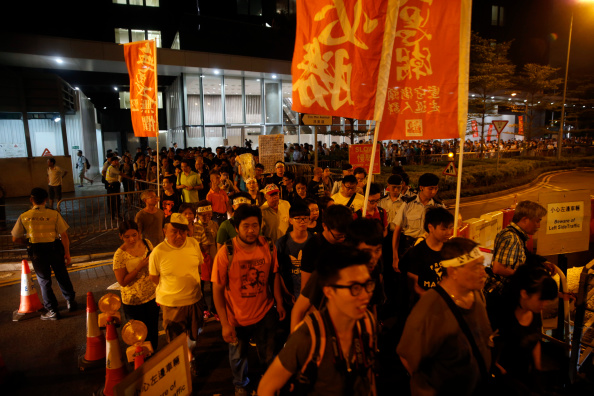HONG KONG – Hong Kong pro-democracy lawmakers disrupted a Beijing official’s speech Monday as he sought to explain a decision announced over the weekend to tightly limit voting reforms for the southern Chinese financial hub.

The legislators chanted slogans and held up placards accusing China’s central government of “breaking its promise” to let Hong Kong directly elect its leader. Some stood on chairs and pumped their fists, waving signs that said “Shameful” and “Loss of faith.”
The noisy demonstration at the start of the speech by Li Fei, a deputy secretary general of the Standing Committee of the National People’s Congress, China’s legislature, was a rare occasion on which a Beijing official faced open defiance.
Li continued his speech after security officers hustled the lawmakers out of the auditorium, to applause from other audience members, including lawmakers and local councillors from pro-establishment parties and business leaders.
Police used pepper spray on members of a radical activist group attempting to storm metal barricades and enter the venue.
On Sunday, Beijing inflamed political tensions by ruling out open nominations of candidates running for Hong Kong’s top job in inaugural elections in 2017. The widely expected announcement sets the stage for escalating confrontations between China’s central government and democracy supporters in Hong Kong who have pledged to carry out a civil disobedience campaign that could culminate in a mass protest to cripple the city’s financial district.
Beijing has pledged to allow voters, rather than an elite committee of mostly pro-Beijing tycoons, to elect Hong Kong’s leader in 2017. But it wants to limit candidates to two or three who must be approved by a nominating body similar to that committee, raising fears that candidates will be screened for loyalty to Beijing.



Comments